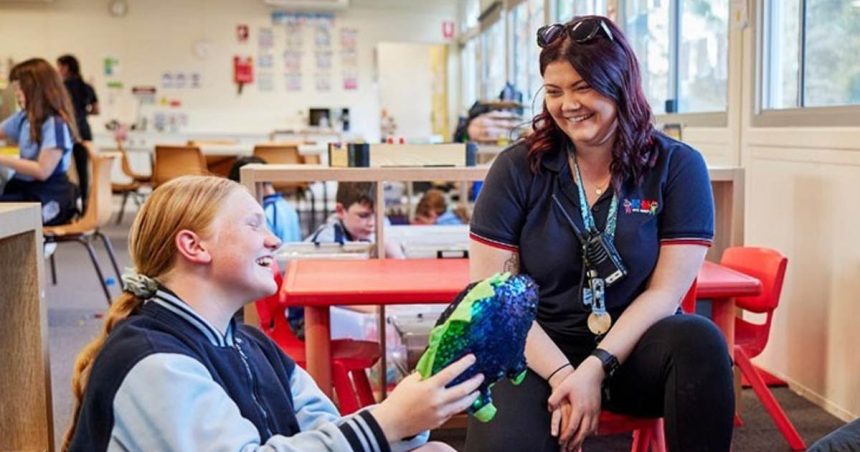Half of all adult mental health challenges will have started before the age of 14 – and with mental well-being as important as physical well-being, children need positive mental health for their physical and emotional development.
To help educators create safe and healthy environments, and to promote positive well-being in children, looking for positive behavioural, social and emotional development is important.
The New South Wales Department of Education has shared some helpful tips and strategies from a range of professional resources, designed to support teachers as they help their students.
According to Emerging Minds, positive child mental health may look like a child who:
- plays (alone and with others)
- meets development milestones
- expresses their feelings
- makes meaning of their world
- is building their resilience
- is curious and engaged.
Signs of mental health concern
It’s important to note that signs of mental health concerns can present themselves in many ways. Signs should be considered within the context of the child’s age and developmental stage, experiences (for example, have they been or are they being exposed to trauma), cultural and spiritual beliefs, environmental factors and their personality.
Sydney Children’s Hospital Network says signs may include but are not limited to:
- trouble sleeping or constantly overtired
- consistent low mood such as sadness for more than 2 weeks
- sudden mood or behavioural changes
- irritability
- weight loss or weight gain
- loss of appetite or significant change in dietary intake
- behaving in a way they have outgrown (for example, wetting the bed or sucking their thumb)
- withdrawal of regular social situations, friends or family.
Tackling trauma
For school-aged children, a drop in academic performance or experiencing self-harm or suicidal thoughts are also signs of mental health concerns.
Some events and situations that may impact children’s mental health include natural disasters, family conflict or violence, and experiences of poverty, neglect, loss and grief, and severe injury.
These events – whether they’re a one-off, part of everyday life or experienced multiple times over a prolonged period – can contribute to trauma in children.
Children’s responses to trauma can vary – and their reactions may be immediate or occur days, weeks or even years later. They may also respond in unexpected or unpredicted ways. Research also tells reveals that experiencing trauma early in life can have a profound and lasting effect on a child’s cognitive, social and emotional development.
Understanding and being able to recognise signs of mental health concerns and trauma responses enable educators to provide appropriate supports and strategies to improve outcomes – immediate and long-term – for children and their families.
Watch the Working with children who’ve experienced trauma webinar, facilitated by the Australian Childhood Foundation, to deepen your understanding of childhood trauma and strategies for supporting children’s well-being.
8 strategies for educators
- Maintain routines and rhythms
- Encourage connections and conversations
- Work collaboratively with families
- Support children in ways that are sensitive to their experiences
- Consider your mandatory reporting obligations
- Link families to specialist services when necessary
- Engage in professional development
- Take care of yourself
Useful links for educators
- NSW Department of Education’s Mental health and well-being webinars
- Raising Children Network’s Mental health resources
- Smiling Mind website and app
- Brighter Beginnings Parent and Carer Information Hub
- NSW/ACT Inclusion Agency’s Big situations page
Mental health services and hotlines
- Beyond Blue1300 224 636: 24/7 mental health support service
- Kids Helpline 1800 55 1800: 24/7 crisis support and suicide prevention services for children and young people aged five – 25
- 1800RESPECT 1800 737 732: 24/7 support for people impacted by sexual assault, domestic violence and abuse
- Lifeline 131 114: 24/7 crisis support and suicide prevention services
- Suicide Call Back Service 1300 659 467: 24/7 crisis support and counselling service for people affected by suicide
- Qlife1800 184 527: LGBTI peer support and referral. Available 3pm to midnight
- 13YARN 139 276: 24/7 crisis support for Aboriginal and Torres Strait Islander people









